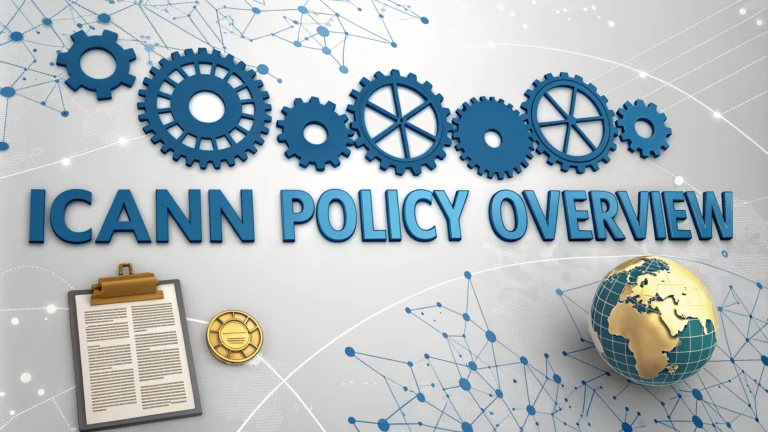ICANN (Internet Corporation for Assigned Names and Numbers) serves as the global organization responsible for managing domain name systems and internet protocol addressing.
The nonprofit coordinates critical internet infrastructure protocols and ensures stable and secure domain name operations worldwide.
Established in 1998, ICANN operates as a decentralized multi-stakeholder organization that manages internet’s unique identifier systems.
Key ICANN Responsibilities
ICANN manages the Domain Name System (DNS) by coordinating global IP address allocation and domain name management.
The organization maintains root nameservers that direct internet traffic and ensure unique domain name assignments.
Key responsibilities include:
- Developing internet naming policies
- Accrediting domain registrars
- Managing top-level domains (TLDs)
- Ensuring global internet stability
Policy Development Process
ICANN’s policy development involves multiple stakeholder groups including governments, businesses, technical experts, and internet users.
Policies are created through transparent, bottom-up consensus-driven approaches that consider diverse global perspectives.
Recommendations typically undergo extensive community review and public comment periods before implementation.
Domain Registration Guidelines
ICANN establishes standardized guidelines for domain name registration and management across different registrars.
These guidelines help prevent cybersquatting, ensure fair domain allocation, and maintain internet security standards.
Registrants must provide accurate contact information and comply with international domain registration requirements.
Global Internet Governance
ICANN plays a critical role in maintaining internet’s neutrality and preventing fragmentation of global internet infrastructure.
The organization works to balance technical coordination with diverse international internet governance perspectives.
By facilitating collaborative decision-making, ICANN helps preserve the internet’s open and interconnected nature.

